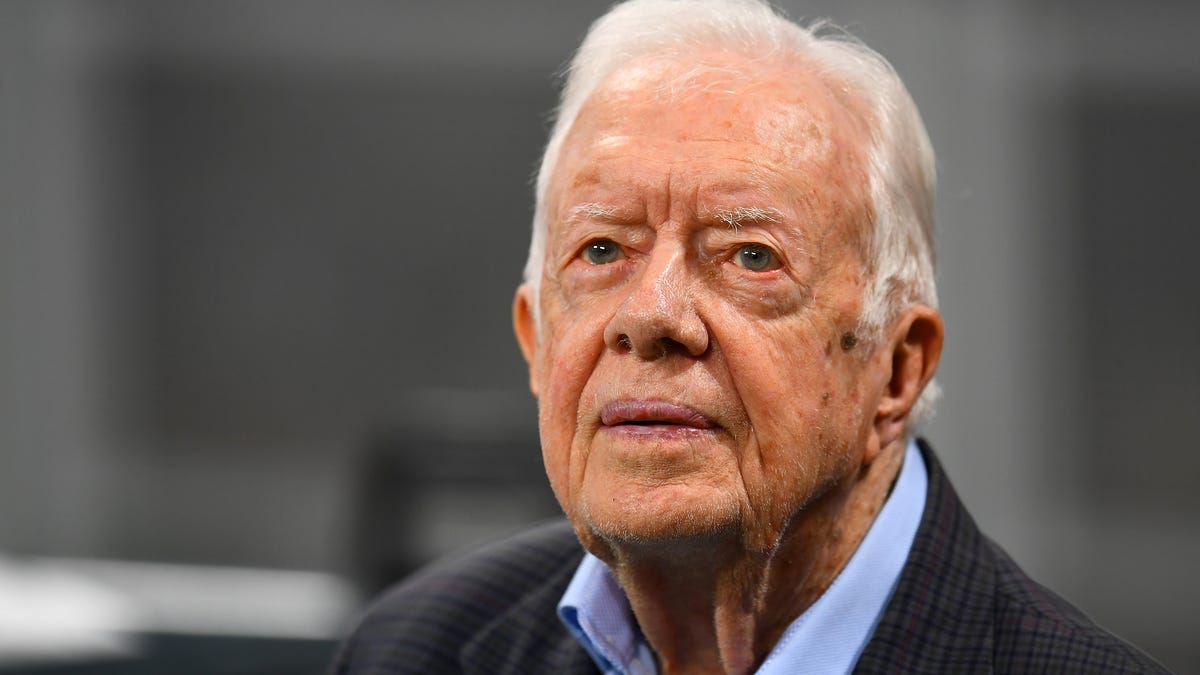In This Story
The stock market may close next month to honor Former President Jimmy Carter, who died Sunday at his home in Plains, Georgia, at the age of 100.
Carter, the 39th and longest-living U.S. president, was honored with a moment of silence earlier on Monday at the New York Stock Exchange (ICE-0.94%) and the Nasdaq (NDAQ-1.68%). When he is laid to rest in January, Wall Street will likely take a break.
President Joe Biden on Sunday ordered that the flag of the U.S. be flown at half-staff at all government and public buildings, as well as foreign embassies, for the next 30 days. He also named January 9 as a national day of mourning and called on the American people to pay homage to the former president’s memory.
“President Carter was a man of character, courage, and compassion, whose lifetime of service defined him as one of the most influential statesmen in our history,” Biden said in a statement. “He embodied the very best of America: A humble servant of God and the people.”
Both the NYSE and Nasdaq have announced special closures to honor the passing of former U.S. presidents. The most recent of such closures happened in 2018, when Former President George H.W. Bush was eulogized that December, and on January 2, 2007, for the death of Former President Gerald R. Ford, who had passed away during the last week of trading in 2006.
The practice, which was also observed in the deaths of Former Presidents Ronald Reagan and Richard Nixon, dates back to the late 1800s. In 1885, the market closed for a day for the funeral of Former President Ulysses S. Grant and continued with the 1901 death and funeral of Former President William McKinley.
The stock market also closed for a day for the deaths of King Edward VII and Queen Victoria of England, as well as other foreign dignitaries and people of note, such as financier J.P. Morgan (JPM-1.15%) and civil rights leader Martin Luther King Jr.
Other special market closings have occurred because of bad weather, such as blizzards, the Apollo II moon landing, and other rare events.





